- Microsoft briefly toppled Apple to become the world's most valuable company, highlighting a potential shift in the tech industry.
- Apple is facing challenges in China, meanwhile, strong fundamentals and macro tailwinds are favoring Microsoft.
- The latter's resilience and strategy in emerging markets could help it regain the crown in the long term and retain it for a while.
- Looking to beat the market in 2024? Let our AI-powered ProPicks do the leg work for you, and never miss another bull market again. Learn More »
In a seismic shift in the tech industry, Microsoft (NASDAQ:MSFT) briefly dethroned Apple (NASDAQ:AAPL) as the world's most valuable company yesterday, boasting a market cap of $2.888 trillion against $2.887 trillion for the Cupertino, California-based behemoth.
While the shift in leadership was only momentary, with Apple reclaiming its position before market close, this change of forces may suggest a potential reshaping of the big tech landscape in the long run.
In fact, since the beginning of the year, it has been evident that Microsoft's ascent to becoming the world's largest company was not a question of "if" but rather of "when."
Now, the most interesting question lies in whether Microsoft's leadership is sustainable - and for how long.
Let's take a deep dive into the two giants' latest news and financials with our InvestingPro tool to better understand where we stand right now.
Macroeconomic Conditions Favor Microsoft
The primary factor influencing the shift in leadership is the broader global macroeconomic backdrop shaping the tech landscape in 2024.
While Apple has held the coveted title of the most highly valued company on the stock market since 2011 - being only briefly topped by Saudi Arabia's Aramco (TADAWUL:2222) amid the rise in oil prices in 2022 - recent developments indicate a more challenging landscape for the iPhone maker than for its peer.
For years, tech companies have been valued with an expectation of rapid growth fueled by an acceleration of the Chinese economy in both consumer and production sectors.
However, the landscape has shifted, marked by China's anticipated GDP deceleration and a transformation in the economic matrix.
This simultaneous increase in production costs and dampening of expected sales have altered the dynamics on both ends of Apple's margins due its disproportional exposure to the country - its primary market in terms of volume for iPhone sales.
In fact, despite a solid 48% increase in stock value in 2023, the company has been feeling the consequences of China's deceleration, particularly pronounced by the disappointing iPhone 15 and iPhone 15 Pro sales in the country.
The rising geopolitical tensions between the United States and China pose yet another risk for Apple, as investors must price in the possibility (not yet concrete) of the Chinese government restricting iPhone purchases in the country or further dampening the electronic device supply chain.
Financial institutions, including Barclays, Piper Sandler, and more recently, Redburn-Atlantic, have downgraded Apple's stocks, citing a slowdown in the company's growth pace, concerns about the Chinese market, and the risk of losing a lucrative contract with Google (NASDAQ:GOOGL) worth US$18 billion due to an ongoing antitrust lawsuit against the search engine giant.
In stark contrast, Microsoft seems more resilient to these challenges, with less exposure to the Asian giant and a broader suite of revenue streams.
Microsoft's stable profit source from software licensing, involving recurring payment services to loyal customers, has favored the company. This business model and a relentless focus on AI allow Microsoft to incorporate AI advancements into established products efficiently.
As analysts expect global growth to be led by other robust consumer markets, including India, Mexico, and certain parts of Africa, which are experiencing rapid growth and promising sustained sales in the long term, the Redmond, Washington-based giant appears better positioned.
Conversely, this shift poses a challenge for Apple, as it favors companies pursuing growth with more accessible products and higher AI integration - areas in which Microsoft excels.
Microsoft Excels at Monetizing AI, While Apple's Offering Remains Subpar
Microsoft's stellar performance throughout 2023, marked by a 57% surge in stock value, can be attributed, in part, to a strategic alliance with OpenAI, the mastermind behind ChatGPT.
This collaboration empowered Microsoft to seamlessly integrate cutting-edge artificial intelligence (AI) solutions across its software spectrum, encompassing text generation, image processing, and programming code creation.
The company further solidified its dominance in the fiercely competitive cloud services arena through its Azure platform, challenging industry giants like Amazon (NASDAQ:AMZN) and Alphabet (NASDAQ:GOOG).
Satya Nadella, the CEO of the Windows developer, nearly hired Altman during this period, showcasing the depth of Microsoft's impact on OpenAI.
Apple's AI integration, on the other hand, remains sub-par, to say the least.
The company's strategic move for 2024 was the announcement of the Vision Pro augmented reality headset, set to hit the market on February 2nd with a substantial price tag of US$3,500.
However, even considering the expected CAGR for the VR industry, along with Apple's growing market share in the segment, calculations are that the numbers will hardly make up for the hole left by the softening Chinese economy in the iPhone market.
Looking at market expectations for the years ahead, it is clear that the iPhone maker will have to run fast in order to breach the gap of its AI offering before falling significantly behind the competition.
InvestingPro Financial Models Also Favor Microsoft
Both companies face challenges related to high stock prices compared to expected earnings. Apple's stocks trade at a future multiple of 28x, well above the 10-year average of 19, while Microsoft exhibits a multiple of approximately 31x.
However, going a bit deeper into the companies' fundamentals with InvestingPro, we can see that Microsoft clearly presents more positive points than the competition.
- Apple's ProTips:
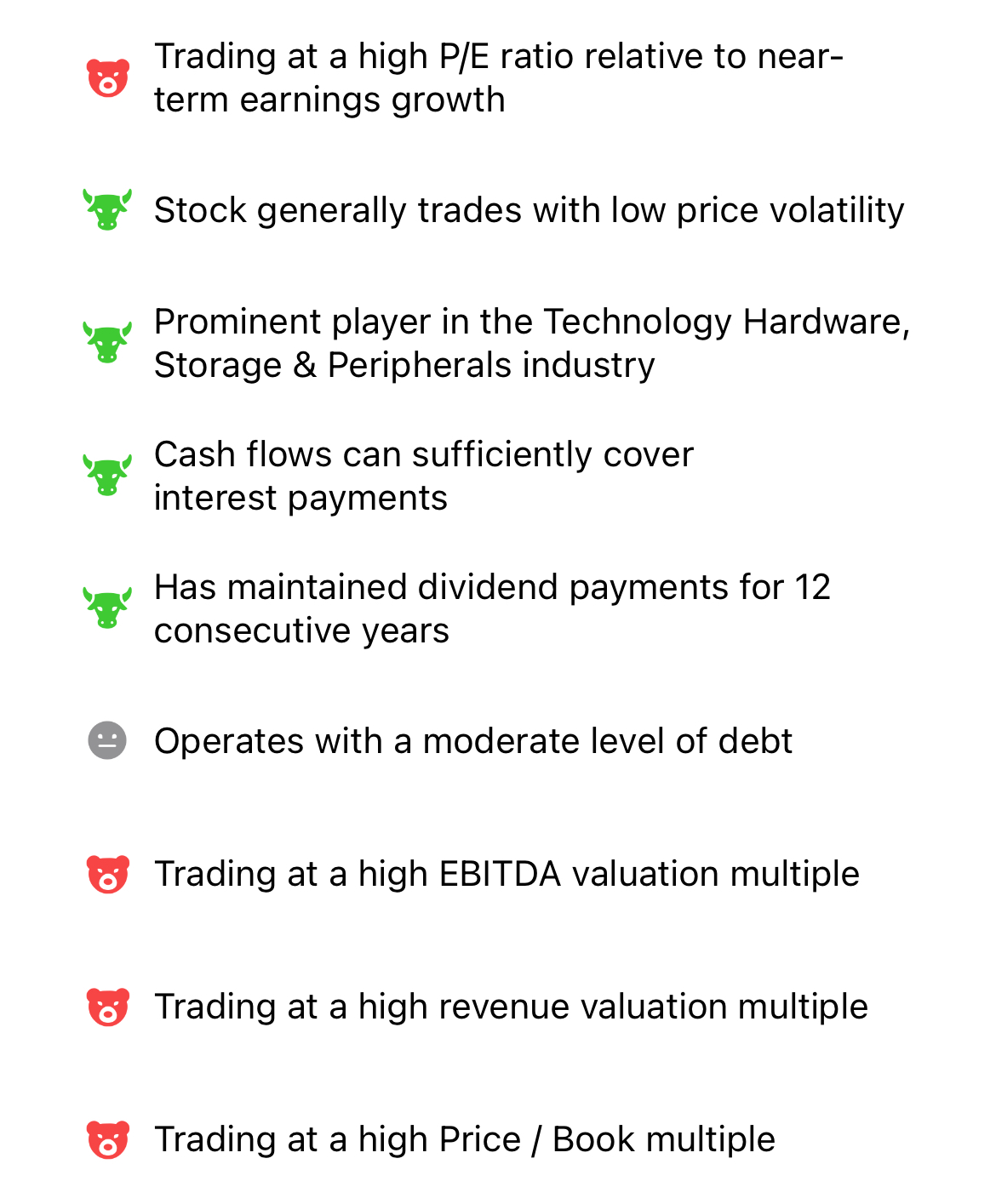
Source: InvestingPro
- Microsoft's ProTips:
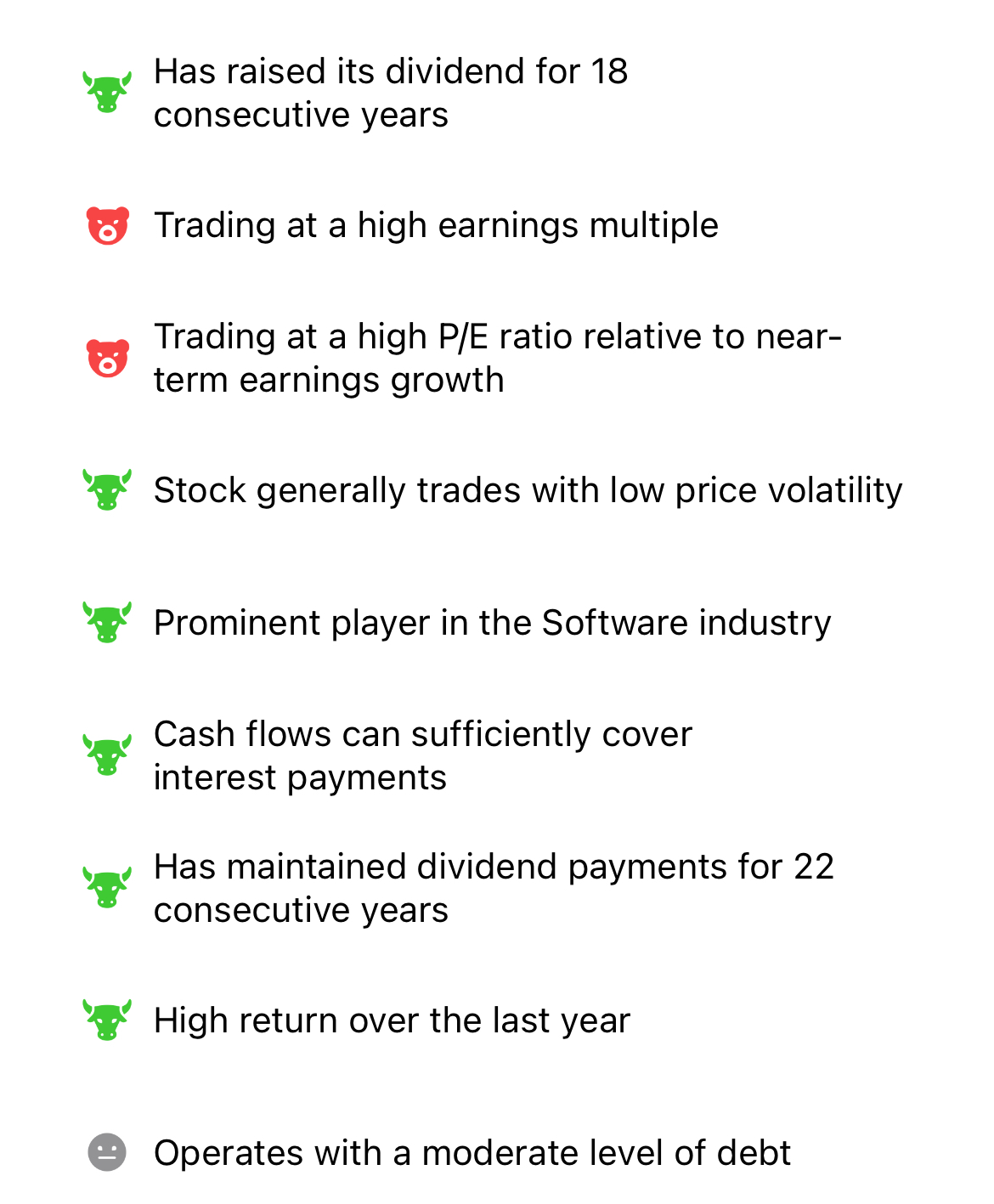
Source: InvestingPro
While both companies present a downside Fair Value Estimate, Microsoft's is just -4.72%, while Apple's is a hefty -12.9%.
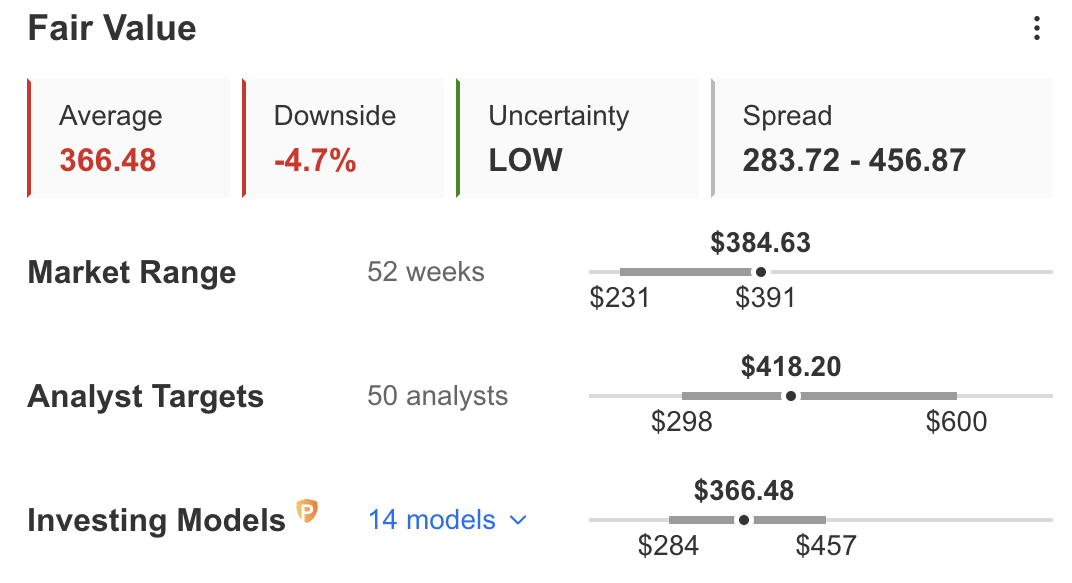
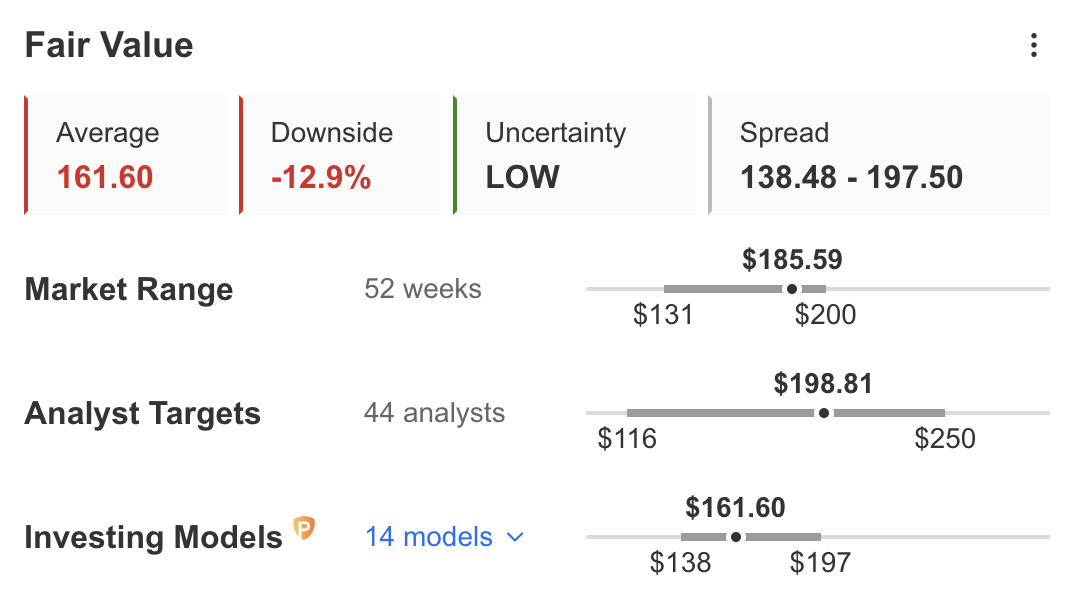
Source: InvestingPro
Accordingly, InvestingPro's Financial Health score also favors Microsoft, giving it an 'Great Performance' score - against Apple's 'Good Performance.'
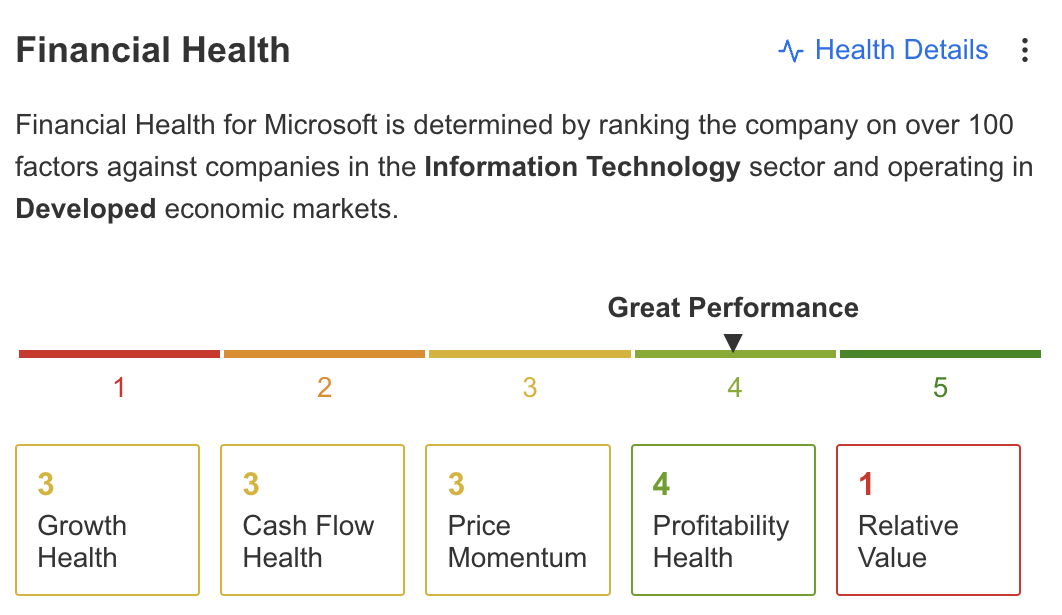
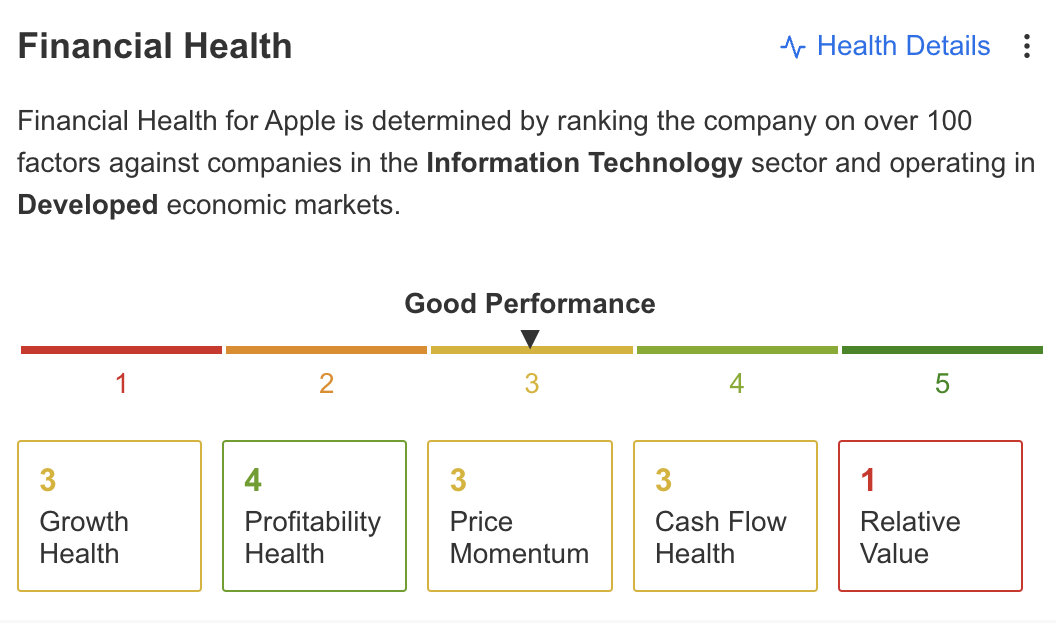
Source: InvestingPro
The main reason behind the trend is the companies' profitability growth - as seen in the comparison between the two companies below. While Apple's revenue growth (on the left) remains subdued, Microsoft (right) appears to be back to sustained growth.
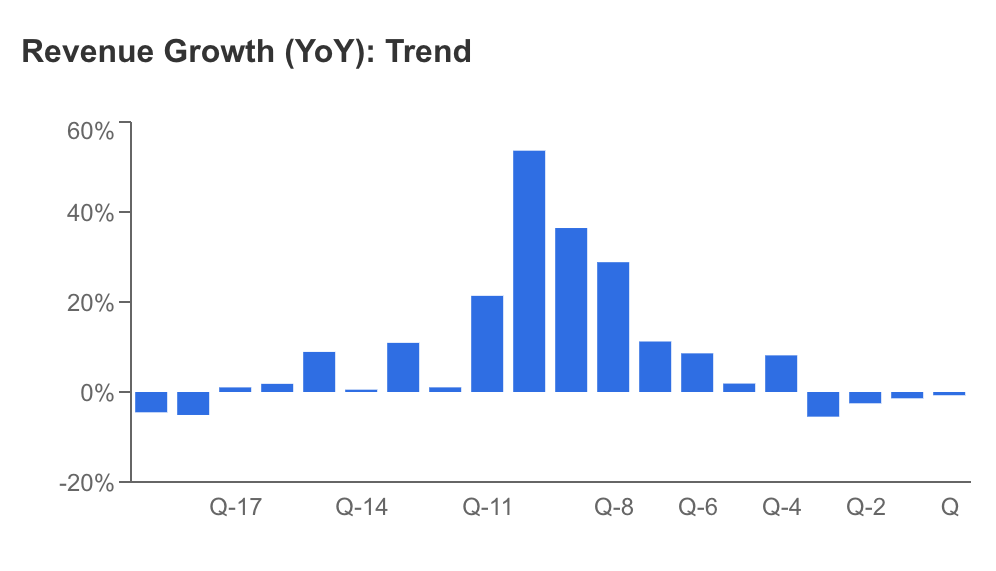
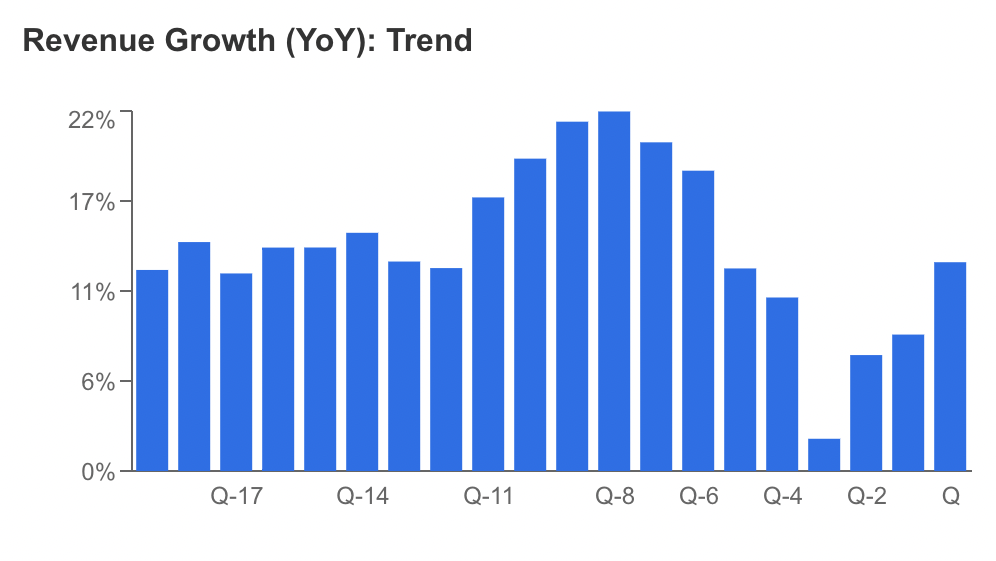
Source: InvestingPro
As such, the comparison between revenue growth, PE, and market cap highly favors Microsoft going forward. 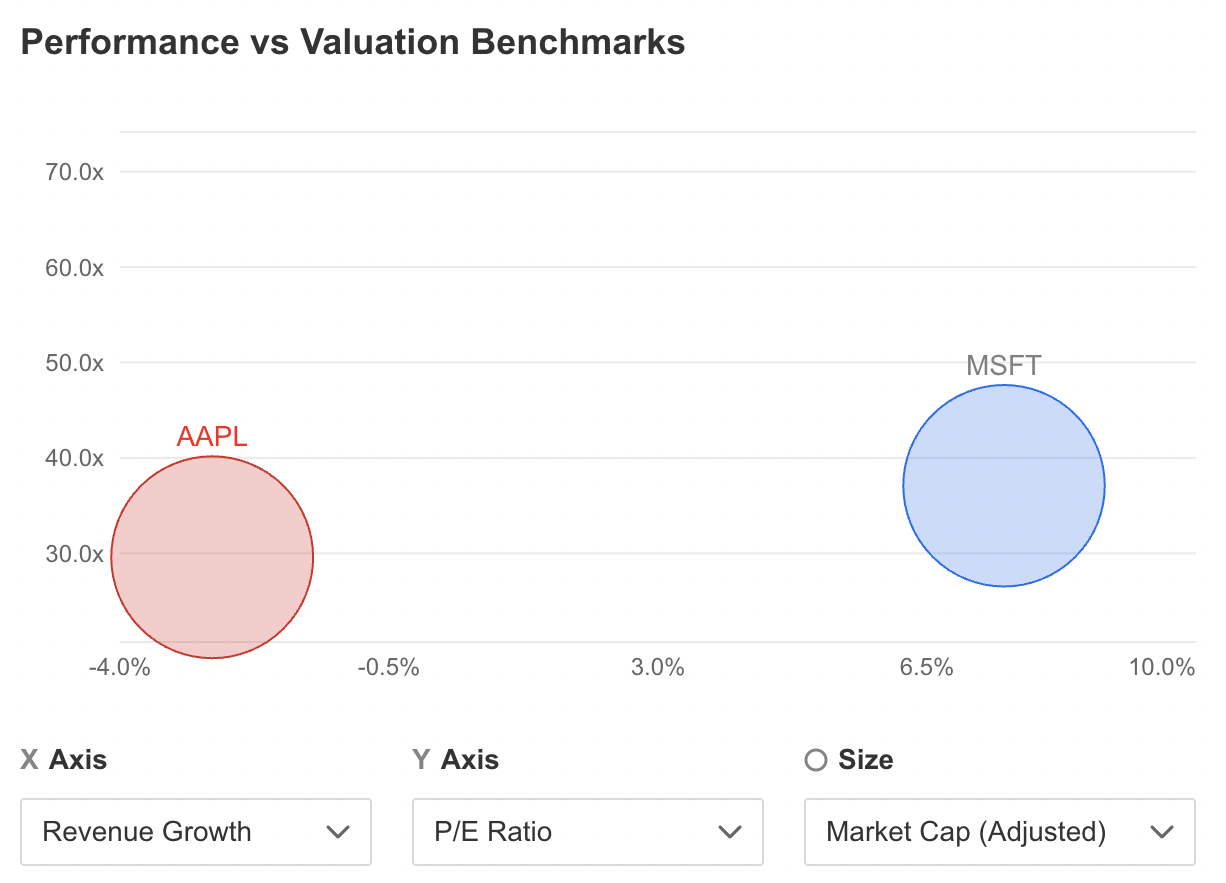
Source: InvestingPro
Bottom Line
The years ahead will reveal whether Microsoft's strategic use of AI integration can secure its leadership as the world's most valuable company or if Apple will successfully address its challenges and regain the top position.
However, as of now, all the leading indicators hint at a decade of Microsoft leadership.
Moreover, it remains clear that Apple must rethink its business model quickly to adapt to the new macro and technological environment to catch up to the same growth level of its peers.
***
In 2024, let hard decisions become easy with our AI-powered stock-picking tool.
Have you ever found yourself faced with the question: which stock should I buy next?
Luckily, this feeling is long gone for ProPicks users. Using state-of-the-art AI technology, ProPicks provides six market-beating stock-picking strategies, including the flagship "Tech Titans," which outperformed the market by 670% over the last decade.
Disclosure: The author owns both Apple and Microsoft shares, with a heavier exposure to the latter.

